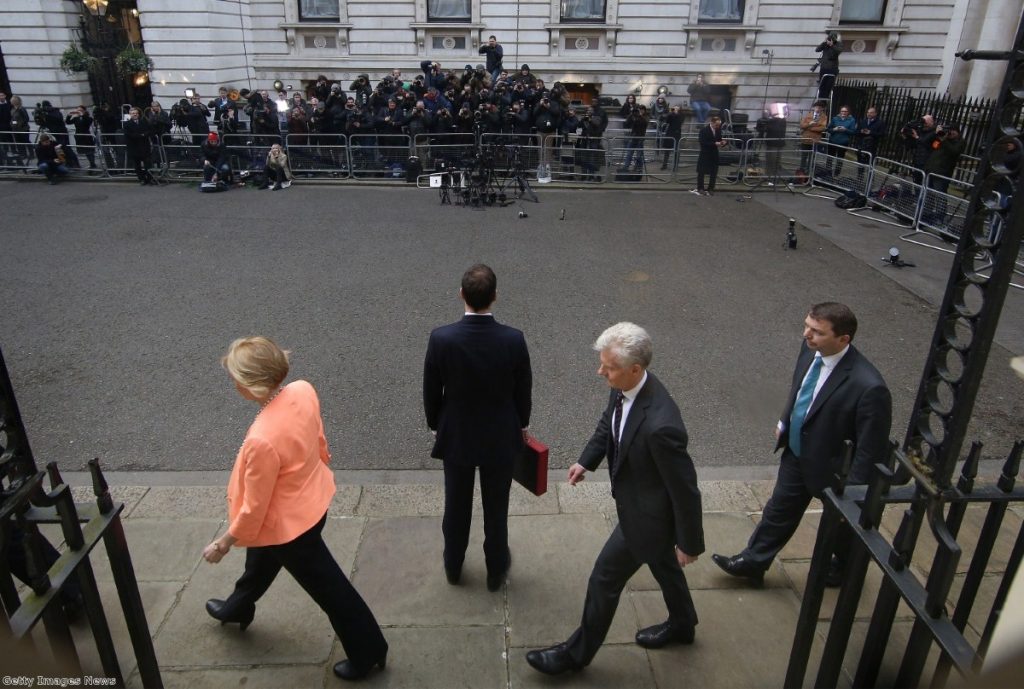Budget 2015 analysis: A more mature Osborne plays a more complex political game
It's now a truism to call George Osborne an intensely political chancellor, but that does not stop it being true. He was and remains a man who views all ideas through the prism of the Tory party's electoral fortunes. But today's impressively-delivered Budget shows he has matured in how he plays that game. This was a much smarter and more mature political attack than the chancellor had previously offered.

Osborne had a few extra billion to play with due to shares from Lloyds, Northern Rock and Bradford and Bingley, as well as low inflation and reduced benefit bills. Even as recently as last October, the chancellor would likely have splurged it on tax bribes for his core voters. After all, that's what Cameron was doing during his last conference speech, with £7 billion in uncosted tax reductions, being pulled out the hat at the last moment. It seemed as if their nervousness over fleeing voters meant the Tories were prepared to sacrifice their central message of financial responsibility.
Instead, Osborne today pledged to put that money towards deficit reduction, trading weaponised electoral bribes for a reinforcement of the Tories' image.
This was not some new epiphany of responsibility. It was as political as usual. It allowed Osborne to counter Ed Miliband's claims that he planned to slash public spending to the levels of the 1930s. This Wigan Pier attack clearly spooked the chancellor, because he neutered it completely. Instead, spending levels will approximate Britain circa 2000, the last year, in the chancellor's historical account, in which Britain still had control of its spending (he supported Labour spending plans long after that, but that's been written out of the official record).

"A state neither smaller than we need, nor larger than we can afford," the chancellor said, with a flourish. It was a vision far removed from the massive cuts Osborne once proposed for after the election, all of which were due to take place without any tax rises to offset the impact on public spending.

From then on, the chancellor went through his list diligently, ticking off potential Labour attacks one by one. He reduced the lifetime pension allowance to £1 million, forcing Ed Balls to find a new way to fund Labour's promised tuition fee cut. He initiated a review into using deeds of variation to dodge inheritance tax – a tactic once used by the Miliband's family (although they insist they paid all the appropriate tax). He said inequality was lower than in 2010, that living standards were higher, that satisfaction with public services was rising.

Regardless of the truth of these claims, they were plainly designed as neat economic packages for Tories to use on the doorstep, a how-to guide for dismantling Labour's election message and turning the fire on Miliband.
Osborne deserves some credit for maintaining discipline so close to polling day. He sacrificed individual potential benefits for the overall story he wanted to tell. By ploughing that money into deficit reduction, he shored up his core narrative: responsibility during times of crisis, a steady hand on the tiller. Meanwhile, with that image preserved, he went behind the scenes and did all the tinkering necessary to eliminate Labour's counter-attacks. Was it cynical? Yes. But it was also very successful.







-01.png)